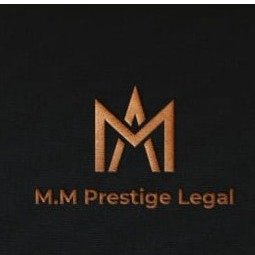Best Corporate & Commercial Lawyers in Pretoria
Share your needs with us, get contacted by law firms.
Free. Takes 2 min.
List of the best lawyers in Pretoria, South Africa
South Africa Corporate & Commercial Legal Questions answered by Lawyers
Browse our 1 legal question about Corporate & Commercial in South Africa and read the lawyer answers, or ask your own questions for free.
- Vehicle breakdown
- My vehicle broke down and I took it to a [company removed] dealership. The initial fault was an oil leak; after investigation they topped up the oil and started the vehicle. After a while they heard a knocking sound and some other noises, so they switched off the engine and... Read more →
-
Lawyer answer by mohammad mehdi ghanbari
Hello, Thank you for reaching out. I hope you are well. If the dealership caused additional damage to your vehicle, such as a connecting rod protrusion, due to negligence during repairs, they are generally legally responsible for fixing the new...
Read full answer
South Africa Corporate & Commercial Legal Articles
Browse our 1 legal article about Corporate & Commercial in South Africa written by expert lawyers.
- B-BBEE Compliance for International Firms in South Africa
- B-BBEE is a commercial imperative for international firms seeking to participate in the South African economy, particularly for government tenders and large-scale private supply chains. Multinationals can bypass the requirement to sell equity to local partners by utilizing Equity Equivalence Investment Programs (EEIP) approved by the government. Fronting, or misrepresenting... Read more →
About Corporate & Commercial Law in Pretoria, South Africa
Corporate and commercial law refers to the legal framework governing businesses, companies, and commercial transactions in South Africa. Pretoria, as the administrative capital and home to key government departments and legal institutions, is a central hub for corporate and commercial legal services. Whether you are starting a new business, operating as a company director, or negotiating complex contracts, understanding this area of law is vital for risk management and legal compliance. Laws in this sector regulate business formation, governance, mergers, acquisitions, contracts, insolvency, and more.
Why You May Need a Lawyer
Corporate and commercial lawyers provide crucial support for both new and established businesses. Some common situations where you might need their assistance include:
- Starting a new company or business venture and selecting the appropriate legal structure
- Draughting, reviewing, or negotiating commercial contracts such as joint ventures, supply agreements, or shareholder agreements
- Ensuring compliance with the Companies Act and other relevant business regulations
- Managing mergers, acquisitions, restructurings, or sales of businesses
- Resolving business disputes, including those involving partners, shareholders, or third parties
- Advising on employment matters regarding corporate transactions
- Dealing with insolvency proceedings or liquidation processes
- Securing intellectual property rights
- Tax planning and corporate governance advice
- Navigating regulatory requirements specific to Pretoria or relevant industry sectors
Local Laws Overview
Pretoria businesses must adhere to South African national laws, many of which are administered or enforced locally. Key legal instruments and regulations include:
- Companies Act 71 of 2008: Outlines rules for company formation, operation, governance, and director duties
- Close Corporations Act: Governs close corporations, a popular small business entity
- Consumer Protection Act: Sets out consumer rights and business obligations when selling goods or services
- Competition Act: Regulates anti-competitive practices, mergers, and market dominance issues
- Income Tax Act and Tax Administration Act: Address corporate and commercial tax obligations
- Intellectual Property Laws: Protecting trademarks, patents, copyrights, and designs
- Labour Relations Act: Governs employment matters arising in commercial environments
- Insolvency Act: Applies in cases of business financial distress
In Pretoria, businesses also need to ensure compliance with local municipal by-laws, licensing regulations, and zoning rules. Legal advice helps ensure you do not inadvertently breach any regulations, which could result in penalties or legal action.
Frequently Asked Questions
What is the difference between a company and a close corporation in South Africa?
A company is regulated under the Companies Act and can have more complex governance structures, while a close corporation is simpler and suited to small businesses with up to 10 members. New close corporations can no longer be registered, but existing ones remain valid.
How do I register a company in Pretoria?
Company registration is handled by the Companies and Intellectual Property Commission (CIPC). You need to submit required documents, reserve a company name, and comply with registration fees and requirements.
What commercial agreements should my business have?
Common commercial agreements include partnership agreements, shareholder agreements, supplier contracts, employment contracts, and non-disclosure agreements. Each agreement protects your rights and clarifies responsibilities.
What is corporate governance and why is it important?
Corporate governance refers to processes and systems directing and controlling a company. Good governance ensures legal compliance, ethical conduct, and protects shareholder interests.
Can I resolve business disputes without going to court?
Yes, many disputes can be resolved through negotiation, mediation, or arbitration. These alternative dispute resolution methods are often faster and cost-effective.
What are the consequences of non-compliance with the Companies Act?
Non-compliance can result in penalties, fines, director liability, or company deregistration. Repeated or serious contraventions can lead to criminal charges.
How are mergers and acquisitions regulated?
Mergers and acquisitions must comply with the Companies Act, competition laws, and sometimes require approval from the Competition Commission, especially if they influence market competition.
What intellectual property protections are available in South Africa?
Businesses can apply for patents, trademarks, designs, and copyright protection to safeguard products, brands, inventions, and creative works through the CIPC.
When is a business considered insolvent?
A business is insolvent when it cannot pay its debts as they become due or when its liabilities exceed its assets. This may trigger liquidation or business rescue proceedings.
Are there local permits or licenses I need to operate in Pretoria?
Depending on your industry and business activities, you may need municipal permits or licenses, such as a business licence, health and safety certificates, or sector-specific approvals.
Additional Resources
If you require more information or help, the following organizations and bodies may be useful:
- Companies and Intellectual Property Commission (CIPC) - for company and intellectual property registrations
- Department of Trade, Industry and Competition (DTIC) - for business regulations and incentives
- Pretoria Attorneys Association - for referrals to qualified corporate and commercial lawyers
- Local Chamber of Commerce - for business support and networking
- Small Enterprise Development Agency (SEDA) - for SME advice and support
- Competition Commission - for advice on mergers and anti-competitive conduct
- South African Revenue Service (SARS) - for tax registration and compliance
Next Steps
If you need legal assistance in corporate and commercial matters in Pretoria, you should:
- Identify your legal issue or question, writing down all relevant facts and documents
- Contact a qualified corporate and commercial lawyer with experience in your business sector
- Prepare for your consultation by listing your concerns and desired outcomes
- Request a written fee estimate and ensure you understand the scope of services offered
- Act promptly, as delays in legal matters can often complicate situations or limit your available remedies
Seeking professional legal advice early can help you avoid pitfalls, ensure compliance, and support your business’s growth and success in Pretoria’s dynamic market.
Lawzana helps you find the best lawyers and law firms in Pretoria through a curated and pre-screened list of qualified legal professionals. Our platform offers rankings and detailed profiles of attorneys and law firms, allowing you to compare based on practice areas, including Corporate & Commercial, experience, and client feedback.
Each profile includes a description of the firm's areas of practice, client reviews, team members and partners, year of establishment, spoken languages, office locations, contact information, social media presence, and any published articles or resources. Most firms on our platform speak English and are experienced in both local and international legal matters.
Get a quote from top-rated law firms in Pretoria, South Africa — quickly, securely, and without unnecessary hassle.
Disclaimer:
The information provided on this page is for general informational purposes only and does not constitute legal advice. While we strive to ensure the accuracy and relevance of the content, legal information may change over time, and interpretations of the law can vary. You should always consult with a qualified legal professional for advice specific to your situation.
We disclaim all liability for actions taken or not taken based on the content of this page. If you believe any information is incorrect or outdated, please contact us, and we will review and update it where appropriate.
Browse corporate & commercial law firms by service in Pretoria, South Africa
Pretoria, South Africa Attorneys in related practice areas.

















